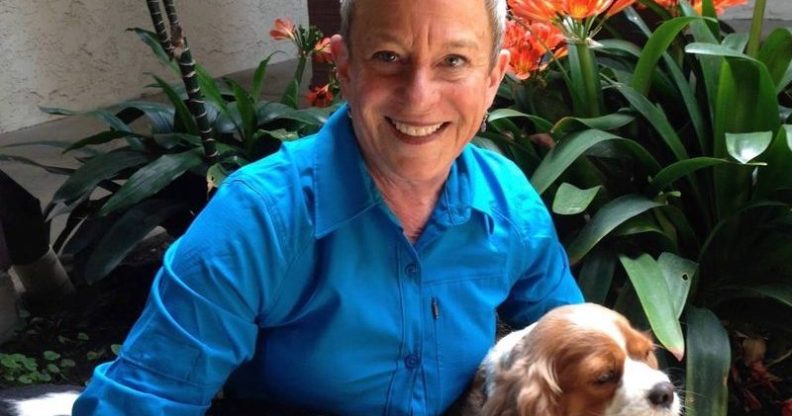Lesbian LGBT rights champion Rose Greene dies aged 72

Rose Greene. (Los Angeles LGBT Center)
Rose Greene, one of Los Angeles’ most prominent LGBT+ rights advocates, has died from bone cancer aged 72.
Greene was the driving force behind one of the biggest HIV fundraising events in the US – a 500-mile bike ride that last year raised a record-breaking $16.6 million.
The 72-year-old died from bone cancer on July 11, according to Lorri L. Jean, CEO of the Los Angeles LGBT Center.
“Today the Center joins our community in mourning the loss of a true warrior in the fight for LGBT equality, health, and happiness,” Jean said in a statement.
“Today the Center lauds this tireless champion of the oppressed, this extraordinary, amazing, powerful, hilarious, and loving woman. May she rest in peace,” she said.
Sad news for all who knew #LGBTQ community champion, Rose Greene. We're thinking of her friends at the @LALGBTCenter, of which she was a very big part. https://t.co/PmtKPidsaU @DoranyPineda90 @latimes @AIDSLifeCycle
— LA City Attorney (@CityAttorneyLA) July 16, 2019
The inaugural bike ride took place in 1994 and raised $1 million, setting a fundraising precedent for HIV treatment and changing the face of LGBT+ fundraising nationally.
But not everyone thought it was a good idea at the time.
“It was a risky thing,” Alan Acosta, the center’s director of strategic initiatives, told the LA Times. “Very few board members believed in it, but Rose was one of the ones who did.”
The multi-day bike ride, which sees participants cycle from San Francisco to Los Angeles, has since raised more than $280 million to provide free HIV/Aids medical care, testing and prevention services to the LGBT+ community.
The growth of the bike ride “really changed the face of fundraising for nonprofits,” said Acosta.
Greene married her wife in 2008
Greene was twice on the board of directors of the Los Angeles LGBT center, and also served at the center in the early 1990s when the community was under attack.
Greene, according to Acosta, was a key figure in opposing the “Don’t Ask Don’t Tell” policy in the US military and fighting for policies that would prohibit discrimination on the basis of sexual orientation.
“She was directing a lot of our activity around that … she took the board in the direction to be more active and political,” Acosta said.
She understood that “in affecting policy, you can have a huge impact on issues that affect community in a way where we weren’t just provided services,” he said. “She was a real mensch.”
Greene was born in 1946 in Los Angeles and came out as a lesbian in the 1960s.
She married her wife, Helena Ruffin, on June 17 2008, the day after same-sex marriage was legalised in California. Greene is survived by Ruffin.

